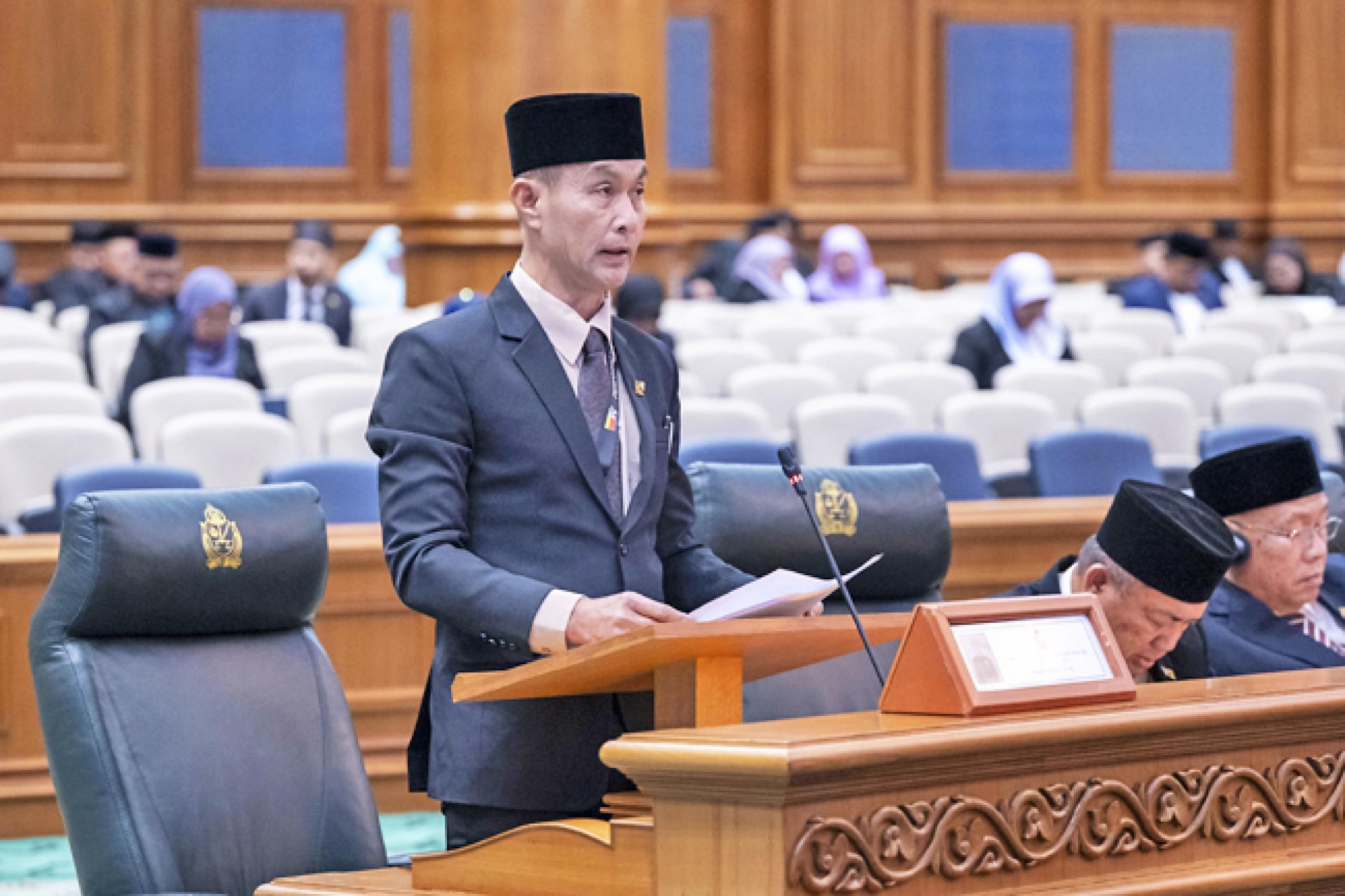(Bandar Seri Begawan, 7th) Legislative Council member Mohamad Mod Daniel stated that, in the process of implementing Brunei Vision 2035, global challenges are becoming increasingly complex. These issues are not only domestic problems, but are also increasingly influenced by rapid developments in global technological, economic, and environmental fields.
He made these remarks on the second day of the 21st Legislative Council's second meeting. He believes that climate change and natural disasters are among the most pressing issues, as they have a direct and increasingly serious impact on citizens' lives and the sustainability of national resources. He stated that extreme weather, sudden floods, and threats to food and water security are no longer issues that can be ignored.
He suggested, firstly, simplifying policies related to environmental protection and sustainable development; secondly, to carry out climate education and disaster awareness education among youth; thirdly, to encourage green research, innovation, and sustainable technology; and fourth, to integrate Bruneian and Islamic values into development efforts to ensure long-term well-being is not compromised.
He pointed out that 72% of Brunei's land is still covered by forests, of which 41% is designated as forest reserves, reflecting the country's commitment to environmental protection and sustainable management of natural resources.
He said this success was the result of joint efforts by the government, private sector, and non-governmental organizations (NGOs), who work together to protect Brunei's natural heritage for the benefit of future generations.
According to ongoing monitoring by the Department of Environment, Parks and Recreation (JASTRe) under the Ministry of Development, as of November 2022, air quality in all four districts remains safe and meets World Health Organization (WHO) guidelines.
He stated that these initiatives demonstrate that Brunei's development agenda not only focuses on economic growth and material expansion, but also regards environmental protection as a key pillar of sustainable development, in line with "Brunei Vision 2035."
He hopes that environmental protection initiatives can go beyond community projects and public awareness campaigns, and be comprehensively integrated into key development sectors, especially the construction industry and the development of public infrastructure.
He stated that every construction project should prioritize sustainable and environmentally friendly practices.
To support this direction, he urged the authorities to issue comprehensive guidelines in line with environmental sustainability principles.
These guidelines should include stricter Environmental Impact Assessments (EIA) and compliance with international green standards, ensuring that material development contributes to creating greener, healthier, and more livable cities and communities.
He also called for comprehensive and integrated flood control measures, including improvements to drainage infrastructure, strategic land-use planning, community education, and strengthened participation of youth and the public.
He suggested, firstly, simplifying policies related to environmental protection and sustainable development; secondly, to carry out climate education and disaster awareness education among youth; thirdly, to encourage green research, innovation, and sustainable technology; and fourth, to integrate Bruneian and Islamic values into development efforts to ensure long-term well-being is not compromised.
He pointed out that 72% of Brunei's land is still covered by forests, of which 41% is designated as forest reserves, reflecting the country's commitment to environmental protection and sustainable management of natural resources.
He said this success was the result of joint efforts by the government, private sector, and non-governmental organizations (NGOs), who work together to protect Brunei's natural heritage for the benefit of future generations.
According to ongoing monitoring by the Department of Environment, Parks and Recreation (JASTRe) under the Ministry of Development, as of November 2022, air quality in all four districts remains safe and meets World Health Organization (WHO) guidelines.
He stated that these initiatives demonstrate that Brunei's development agenda not only focuses on economic growth and material expansion, but also regards environmental protection as a key pillar of sustainable development, in line with "Brunei Vision 2035."
He hopes that environmental protection initiatives can go beyond community projects and public awareness campaigns, and be comprehensively integrated into key development sectors, especially the construction industry and the development of public infrastructure.
He stated that every construction project should prioritize sustainable and environmentally friendly practices.
To support this direction, he urged the authorities to issue comprehensive guidelines in line with environmental sustainability principles.
These guidelines should include stricter Environmental Impact Assessments (EIA) and compliance with international green standards, ensuring that material development contributes to creating greener, healthier, and more livable cities and communities.
He also called for comprehensive and integrated flood control measures, including improvements to drainage infrastructure, strategic land-use planning, community education, and strengthened participation of youth and the public.
